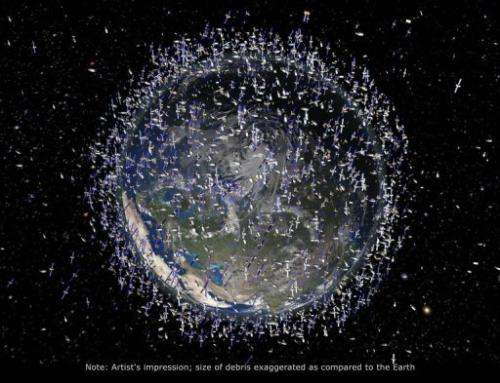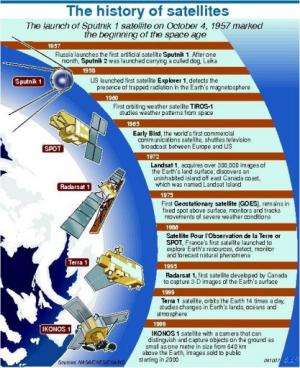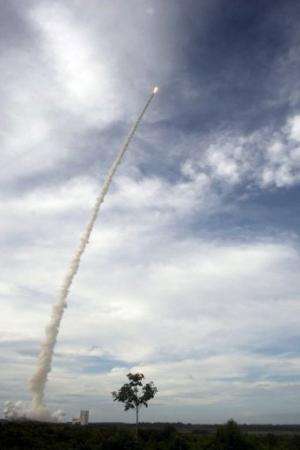US joins effort to draw up space 'code of conduct'

The United States pledged Tuesday to join an EU-led effort to develop a space "code of conduct" that would set rules for orbiting spacecraft and for mitigating the growing problem of orbiting debris.
"The long-term sustainability of our space environment is at serious risk from space debris and irresponsible actors," said a statement from Secretary of State Hillary Clinton.
"In response to these challenges, the United States has decided to join with the European Union and other nations to develop an International Code of Conduct for Outer Space Activities."
Such a code should "help maintain the long-term sustainability, safety, stability and security of space by establishing guidelines for the responsible use of space," Clinton added, noting that work on the code was just beginning.
The proposal was first submitted to the Conference on Disarmament by the European Union in 2009, just days after a disused Russian military satellite and a US communications satellite collided.
A draft code on civilian and military use, which includes pledges on the safety of orbiting space objects, had been previously approved by EU ministers in late 2008.
Countries signing up to the code would pledge to maintain freedom of access and use of outer space "for peaceful purposes without interference, fully respecting the security, safety and integrity of space objects in orbit," according to the text released in Geneva in 2009.

They also would pledge to cooperate to "prevent harmful interference in outer space activities" and seek to prevent outer space from being an area of conflict even if they were engaged in military activities in space.
Clinton said Washington "has made clear to our partners that we will not enter into a code of conduct that in any way constrains our national security-related activities in space or our ability to protect the United States and our allies."
However, she said the United States is "committed to working together to reverse the troubling trends that are damaging our space environment and to preserve the limitless benefits and promise of space for future generations."
The Pentagon said it also supported the concept of a space code of conduct and that the EU draft offered a "promising basis" from which to start.

"An international code of conduct can enhance US national security by encouraging responsible space behavior by reducing the risk of mishaps, misperceptions and mistrust," said Pentagon spokesman George Little.
The US announcement came days after parts of a defunct Russian Mars probe weighing 13.5 tons crashed into the Pacific Ocean after orbiting the Earth for more than two months.
A six-ton NASA satellite launched in 1991 met a similar fate in September last year, plunging into the Pacific Ocean off California.
The US government rejected a previous proposal from Russia and China in 2008 that would have banned the use of weapons in space.
US officials said the proposed treaty was deficient because it did not include a ban on terrestrial weapons that could shoot down satellites.
NASA and the Pentagon claim to be tracking by radar about 19,000 orbiting objects, many of them small pieces of space debris.
The International Space Station must regularly maneuver to avoid colliding with some of the orbiting debris, which could create catastrophic damage.
(c) 2012 AFP

















